Watchdogs not lapdogs: Media bias in Pakistan
4 min readThe importance of a truly free press is vital for the establishment and preservation of a democratic nation. Long before modern objections to the political bias of global nightly news reports and social media commentaries became common fare and accepted as routine practice in Pakistan, it was the Muslim press that proliferated the ideology of Pakistan to Muslims of the subcontinent and provided an opposing viewpoint to the fallacious propaganda otherwise being disseminated to the citizens through opposition media outlets controlled by the government. The Muslim press was something new. They did not mislead or distort the news. Instead, they provided a rallying point in the fight for the ideological state of Pakistan.
The idea that the media has been delivering misleading messages that are bent and twisted to fit specific partisan agendas is, quite literally, nothing new. But it is also fair to say that the level of doubt and suspicion and distrust in the media has never been greater than it is at this very moment in time.
Anyone with even just a fraction of independent and impartial intellectual consideration understands that the media is the lifeblood of an election, and that elections can easily be harmfully manipulated and influenced by powerful lobbies with political objectives. These facts cannot be disputed.
In Pakistan, where both the rhetoric and behaviour of rival political parties has become incendiary to the point of impending self-destruction, the media is taking sides. And what is at stake is nothing less than the future of our country’s fragile democracy.
There is overwhelming evidence that the Pakistani media is unfairly and unethically presenting political accounts that offer only a single party’s candidate’s version of reality. While the practice of selectively distorting the story to fit a specific narrative is generally accepted from the candidate themselves, this type of misrepresentation is not, under any circumstances, a practice that we tolerate from our media.
We know this to be true because in November 2021, the Pakistan Broadcaster Association and the All Pakistan Newspaper Society jointly published a statement that strongly condemned “…all forms of coercion by any government, past or present, that has used government advertising as a tool to influence editorial policy”. Unfortunately, many Pakistan media outlets have, for years, disregarded the blatant attacks against the freedoms of the press and have acquiesced to the pressures of the political parties. It cannot be understated how incredibly dangerous this practice is and the devastating potential consequences to the future of our democracy.
Part of this problem also lies with the unaccountable nature of our social media platforms, where fake news and misleading accounts can disseminate to hundreds of thousands of readers in the blink of an eye. Recently the Brookings Institution, a nonpartisan and nonprofit public policy organization based in Washington, DC, published a report that substantiated the fact that “…political biases affect how these companies operate”.
In other words, social media technologies are designed to select only the most engaging and relevant content based on an individual’s search preferences and, in the process, deliberately ignore any alternate philosophies, thereby making the reader more vulnerable to manipulation. Effectively, these big tech giants have, for years, been deliberately and knowingly brainwashing readers to a single point of view, and the media has been complicit in this deception.
Ultimately, the Pakistan media, with a long history of yellow journalism, can never be considered fair and balanced whenever there is money involved. And, of course, whenever there is money involved, our stories tend to become sensationalized, and our media members are inclined to dismiss the level of accountability that exists with genuine, factual news stories. All forms of corruption and corrupt journalists need to be rooted out from the profession if we want to be able to secure any level of confidence that the media outlets are prioritizing objective news reporting over a “first-to-market” mentality.
Finally, the crude and illegal censorship and harassment of journalists critical of the government cannot continue. If we continue to allow news stations to be arbitrarily and unlawfully removed from the air, or if we continue to be complicit in the harassment faced by those who voice political dissent on social media, then we risk returning to the days of draconian law and that will, once again, result in dangerous power imbalances.
Because of the clear evidence that media coverage is affecting the outcome of our elections, we simply cannot allow agenda-driven storytelling to shape the way that the narrative is delivered. Journalists must take full responsibility for the accuracy of their work, and they should fully support an open and civil exchange of views.
But beyond that, you, as a voter, must make a decision. You can either sit back and allow the media to frame the story snuggly around the canvas of their agenda and their politics. Or you could trust yourself to dig below the surface and read between the lines and then frame the story within the context of your own belief system. At the very least this will offer you the opportunity to feel comfortable that you are making critical decisions based on what is real and what is factual.
And that’s better than where we are today.
Muhammad Adnan is a PhD student at Monash University School of Media, Film and Journalism. He can be reached on Twitter at @Iammadnan





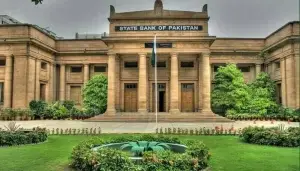





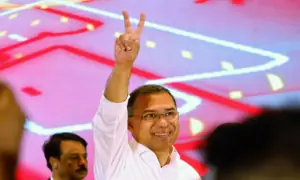
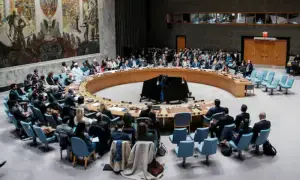
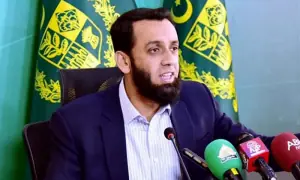

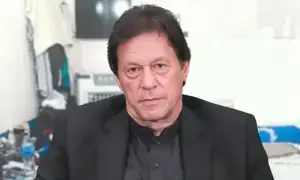










Comments are closed on this story.